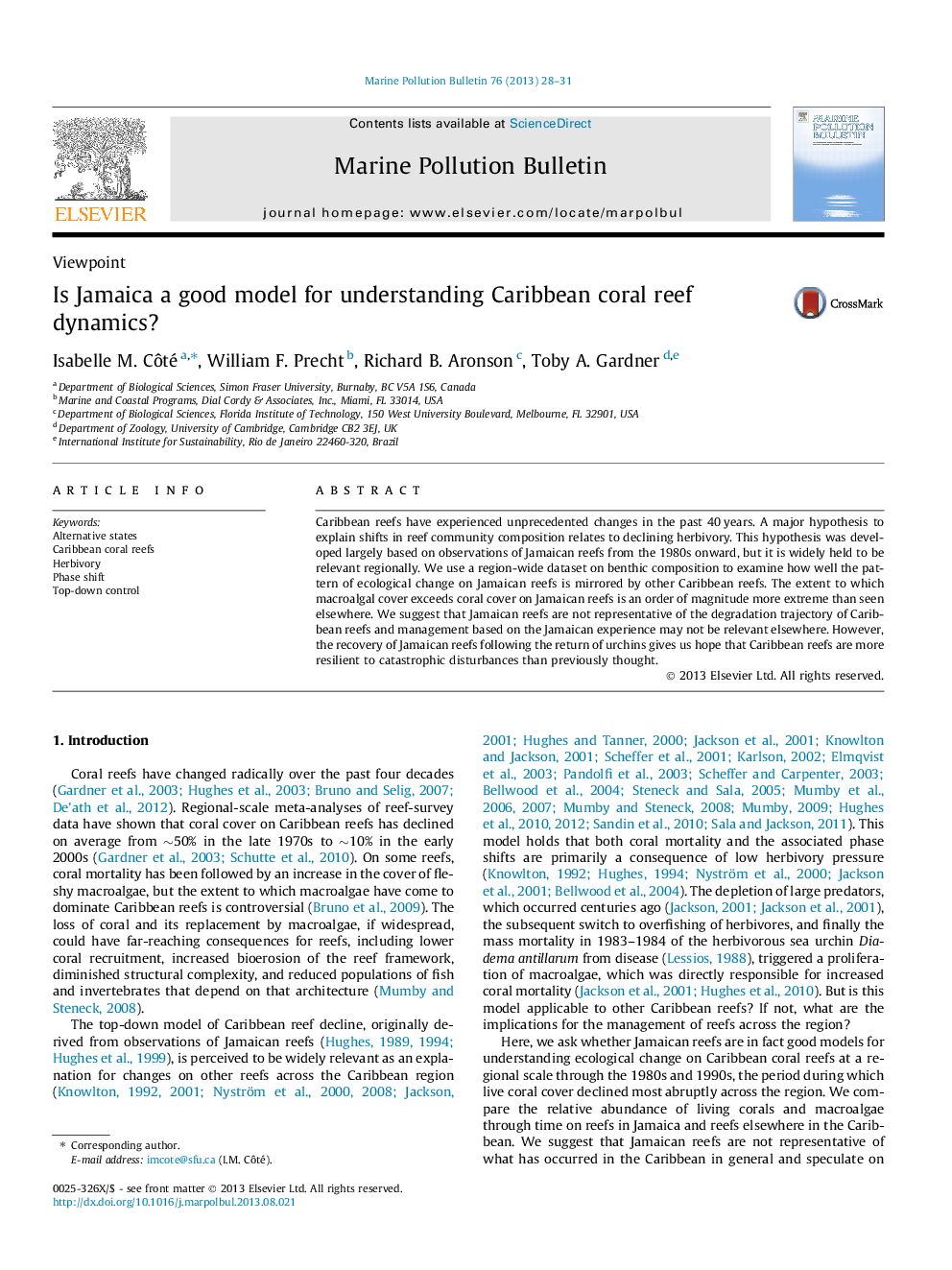| Article ID | Journal | Published Year | Pages | File Type |
|---|---|---|---|---|
| 6359060 | Marine Pollution Bulletin | 2013 | 4 Pages |
â¢In the 1980s and 1990s, there was more macroalgae than coral on Jamaican reefs.â¢This difference is an order of magnitude more extreme than elsewhere in the region.â¢Jamaican reefs do not epitomize the degradation trajectory of Caribbean reefs.
Caribbean reefs have experienced unprecedented changes in the past 40Â years. A major hypothesis to explain shifts in reef community composition relates to declining herbivory. This hypothesis was developed largely based on observations of Jamaican reefs from the 1980s onward, but it is widely held to be relevant regionally. We use a region-wide dataset on benthic composition to examine how well the pattern of ecological change on Jamaican reefs is mirrored by other Caribbean reefs. The extent to which macroalgal cover exceeds coral cover on Jamaican reefs is an order of magnitude more extreme than seen elsewhere. We suggest that Jamaican reefs are not representative of the degradation trajectory of Caribbean reefs and management based on the Jamaican experience may not be relevant elsewhere. However, the recovery of Jamaican reefs following the return of urchins gives us hope that Caribbean reefs are more resilient to catastrophic disturbances than previously thought.
